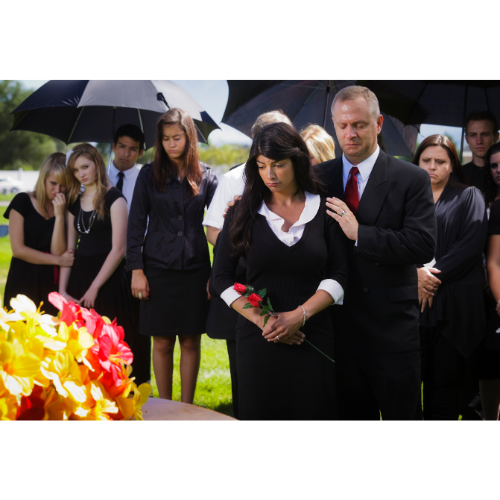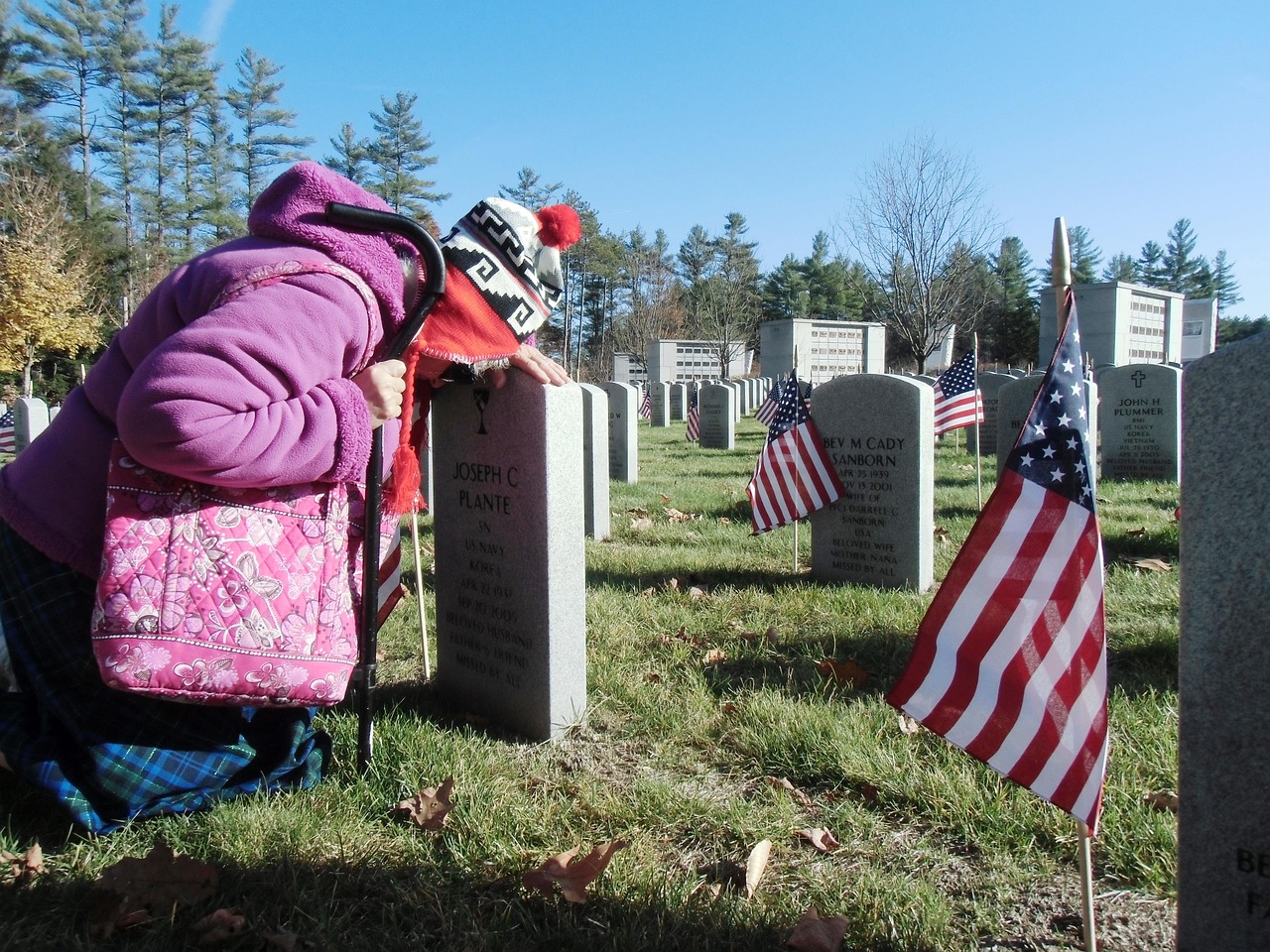
Introduction: Planning a Funeral Service for Non-Believers
Planning a funeral service for a loved one who did not have specific religious beliefs requires careful consideration and respect for their individuality.In recent years, there has been a growing trend towards non-religious funerals that focus on celebrating the life of the deceased rather than incorporating religious elements. This shift reflects the diverse beliefs and preferences of individuals and their families, and it is important to honor these wishes when planning a funeral service.
For example, let’s consider the case of Sarah, who passed away without any specific religious beliefs. Sarah believed in living a meaningful life and wanted her funeral to be a celebration of her life and the impact she had on others. Her family respected her wishes and decided to plan a non-religious funeral service that reflected her values and beliefs.
When planning a non-religious funeral service, it is crucial to consider the individual’s life, beliefs, and wishes. This involves reflecting on their values, interests, and what made their life meaningful. For Sarah’s funeral, her family took the time to understand her passions and the causes she cared about. They decided to incorporate elements into the service that reflected her love for nature and her dedication to environmental conservation. This personalization made the funeral service a true celebration of Sarah’s life.
Seeking guidance from funeral directors or celebrants experienced in non-religious funerals can also be immensely helpful in creating a service that truly honors the deceased. These professionals can provide valuable insights and suggestions for personalizing the service and ensuring that it aligns with the individual’s beliefs and wishes. They can offer options for alternative rituals and ceremonies that are meaningful and appropriate for non-believers.
Considerations for Planning a Non-Religious Funeral Service
Reflecting on the individual’s life and considering their beliefs and wishes are important aspects of planning a non-religious funeral service. It is essential to involve family members and close friends in this process, as they can provide valuable insights into the person’s life and values. They can share stories and memories that can help shape the funeral service and make it a meaningful tribute to the deceased.
In addition to reflecting on the individual’s life, it is also important to consider the logistics of the funeral service. This includes determining the most suitable date, time, and location for the service. Crematoriums and cemetery chapels are traditional venues for non-religious funerals, but there is also the possibility of holding the service at unique locations, such as a beach or a park, that held special significance for the deceased.
Let’s take the example of Mark, who was passionate about music and spent much of his free time playing the guitar. For his non-religious funeral service, his family decided to hold it in a local park where he would often go to play his guitar and enjoy nature. The service included live music performances by his musician friends, creating a unique and personalized farewell that truly reflected Mark’s love for music.
Alternative Rituals and Ceremonies for Non-Believers
Non-religious funerals offer a wide range of alternative rituals and ceremonies that can be tailored to the beliefs and wishes of the deceased. Humanist funerals and civil funerals are two types of non-religious funeral ceremonies that focus on celebrating the life of the deceased without religious elements.
Humanist funerals emphasize the individual’s life and the impact they had on others. These ceremonies are often conducted by humanist celebrants who work closely with the family to create a personalized and meaningful service. Civil funerals, on the other hand, are conducted by a civil celebrant and provide an opportunity for family and friends to remember and celebrate the life of the deceased, regardless of their religious beliefs.
For example, let’s consider the case of Emma, who was a passionate advocate for social justice. Her family decided to organize a non-religious funeral service that incorporated elements of a civil funeral. They invited speakers who had worked with Emma on various social justice projects to share stories and memories. Additionally, they created a slideshow of photographs that showcased Emma’s commitment to making the world a better place. These alternative rituals and ceremonies allowed Emma’s family and friends to honor her memory in a way that was true to her beliefs and values.
Personalizing the Funeral Service for Non-Believers
Personalization is an important aspect of planning a non-religious funeral service. It allows the funeral to reflect the individual’s life, values, and interests. Choosing meaningful readings, music, and speakers that resonate with the person’s beliefs and passions can create a powerful and personalized tribute.
For instance, let’s consider the case of James, who had a deep love for literature. His family decided to incorporate his favorite poems and readings into the funeral service. They chose passages from authors who had inspired James throughout his life. The readings served as a way to honor James’s love for literature and his appreciation for the written word.
In addition to readings and music, personal artifacts and displays of photographs can also be used to create a meaningful tribute. For example, displaying photographs of memorable moments from the person’s life can evoke cherished memories and provide comfort to those attending the funeral service. Sharing memories and stories during the service can also create a sense of connection and celebration of the person’s life.
Choosing Readings, Music, and Speakers for a Non-Religious Funeral
Selecting appropriate readings, music, and speakers is an important aspect of planning a non-religious funeral.It is essential to choose readings and poems that resonate with the beliefs and values of the deceased and their loved ones.
There is a wide range of non-religious funeral readings and poems available that can provide solace and comfort to those attending the service. Examples include “No Matter What” by Debi Gliori, which talks about the unbreakable bond between loved ones, and “The Road Goes Ever On” by J.R.R. Tolkien, which reflects on the journey of life and the memories we leave behind.
When choosing music for a non-religious funeral, it is important to consider the person’s musical preferences and the emotions that the music evokes. The music should reflect the person’s life and values, creating a moving and meaningful experience for those attending the funeral service. It could be their favorite song, a piece of classical music, or a song that holds special significance for the person and their loved ones.
As for speakers, it is important to select individuals who can share personal stories and memories that highlight the person’s character and impact on others. These speakers can be family members, close friends, or colleagues who knew the person well and can provide unique insights into their life and the positive influence they had on others.
Creating a Meaningful Tribute to the Loved One
Creating a meaningful tribute during a non-religious funeral service allows family and friends to honor the memory of the deceased in a special way. Personal artifacts, photographs, and memories can be incorporated into the tribute to create a more personal and heartfelt experience.
For example, let’s consider the case of Rebecca, who was an avid gardener. Her family decided to create a memorial garden in her honor as a part of her non-religious funeral service. They invited attendees to bring a plant or flower to contribute to the garden, symbolizing the growth and beauty that Rebecca brought into their lives. This tribute allowed everyone to actively participate in creating a lasting memory of Rebecca’s love for nature and gardening.
In addition to creating a physical tribute, making charitable donations in lieu of flowers is also a meaningful way to remember the life of the deceased. Charitable donations can support causes that were important to the person or reflect their values. For instance, if the deceased was passionate about animal welfare, donations can be made to an animal shelter or rescue organization. Including information about the chosen charity in the funeral program can encourage attendees to contribute and honor the person’s memory in a meaningful way.
Venue Options for Non-Religious Funerals
When planning a non-religious funeral, there are various venue options to consider. Traditional venues such as crematoriums and cemetery chapels are commonly used for non-religious funerals, as they provide a formal and respectful setting for the service. However, non-religious funerals also offer the flexibility to choose unique and unconventional locations that hold significance for the deceased and their loved ones.
For example, let’s consider the case of Michael, who was a passionate sailor. His family decided to hold his non-religious funeral service at a local yacht club, where Michael had spent many memorable moments sailing with his loved ones. The venue choice allowed his family and friends to gather in a place that held special meaning for Michael, creating a unique and deeply personal farewell.
Choosing a venue that reflects the person’s interests and passions can help create a more intimate and personalized atmosphere for the funeral service. It allows attendees to connect with the person’s life and the experiences that brought them joy.
Planning a Non-Religious Funeral: Logistics and Communication
When planning a non-religious funeral, it is important to consider the logistics of the event to ensure that everything runs smoothly.Logistics include transportation arrangements, selecting an appropriate date and time for the service, and making accommodations for guests.
For instance, when planning a non-religious funeral, the family may need to consider transportation options for attendees, especially if the chosen venue is located outside the immediate area. Providing clear instructions and information about parking and public transportation can help guests navigate the logistics of attending the funeral service.
Communication is also crucial when planning a non-religious funeral. It is important to effectively communicate the details of the funeral service to family members, friends, and other attendees. This can be done through various means, such as personalized invitations, phone calls, or email notifications. Clear communication ensures that everyone is aware of the funeral arrangements and can attend to pay their respects.
Addressing Challenges and Conflict in Non-Religious Funerals
Planning a non-religious funeral can sometimes present challenges and conflicts, particularly when family members have different religious beliefs or expectations. It is important to navigate these potential challenges with sensitivity and respect for everyone involved.
For instance, let’s consider the case of David, whose family had diverse religious beliefs. Some family members wanted to incorporate religious elements into the funeral service, while others preferred a strictly non-religious approach. To address this conflict, David’s family decided to include a moment of silence during the service, allowing each person to reflect and pray silently according to their individual beliefs. This compromise respected the preferences of all family members and created a harmonious environment during the funeral service.
In situations where conflicts arise, seeking help and guidance from neutral third parties or professional mediators can be beneficial.These individuals can provide objective advice and assistance in resolving differences, helping to create a funeral service that honors the deceased’s last wishes and respects the beliefs of all family members involved.
Funeral Service Etiquette for Non-Religious Funerals
Attending a non-religious funeral requires understanding and respecting the etiquette associated with such services. It is important to offer condolences and support to the grieving family, just as you would in any other funeral setting. Expressing sympathy and sharing heartfelt memories of the deceased can provide comfort to the family during this difficult time.
For example, during a non-religious funeral service, you can offer condolences to the family by expressing your sympathy and sharing a personal memory of the deceased. This gesture can bring solace and support to the grieving family, knowing that their loved one had a positive impact on others.
It is also important to be respectful during the funeral service and follow any instructions or guidelines provided by the family. These guidelines may include requests for a specific dress code, restrictions on photography or video recording, or other considerations that are important to the family’s wishes.
Conclusion: Planning a Meaningful Non-Religious Funeral Service
In conclusion, planning a funeral service for a loved one without specific religious beliefs requires careful consideration and personalization. By reflecting on the individual’s life, values, and wishes, it is possible to create a non-religious funeral service that truly honors their memory. Seek guidance from professionals experienced in non-religious funerals, explore venue options that hold significance, and personalize the service to reflect the individual’s uniqueness. Remember to plan a funeral service that aligns with the beliefs and wishes of the deceased, creating a meaningful and memorable tribute to their life.
For further assistance in funeral planning, you can explore the website of Best Priced Funerals. They provide valuable information and resources on funeral planning, including tips on saving expenses and making informed decisions during the funeral planning process. By utilizing the available resources and guidance, you can ensure that the non-religious funeral service you plan is a fitting tribute to your loved one’s life and beliefs.

